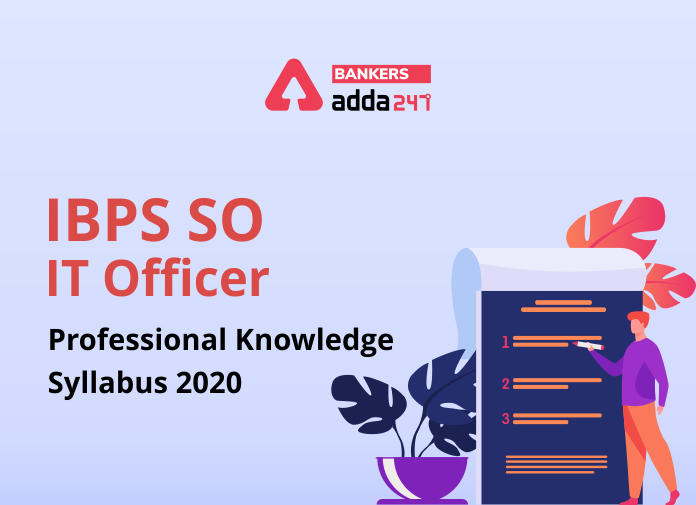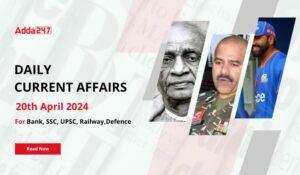Table of Contents
The Institute Of Banking Personnel And Selection released an advertisement for IBPS SO 2020 Recruitment in The Hindu newspaper on 28th October 2020. As per the notice, IBPS will be hiring specialist officers for 6 specializations. The online registration window for IBPS SO 2020 is now opened till 23rd November 2020. Aspirants should not wait for the last moment to apply for the exam rather they should apply as soon as possible because in the future the server can go down due to heavy online traffic. Aspirants who are willing to appear for the IBPS SO exam must have started their preparations by now, the key fact to keep in mind while preparing for the competitive exams is to be aware of the syllabus in detail. Let us look at the detailed syllabus for IBPS SO for the post of IT Officer.
Also check,
- IBPS SO 2020 Recruitment Notification Released: Check SO Vacancy and Exam Dates
IBPS SO IT Officer Scale-1
If the aspirants are aiming to become IT officer In public sector banks, then IBPS SO IT officer 2020 is a brilliant opportunity for them. The registration for IBPS SO has already open and will be opened till 23rd November 2020.
Syllabus for IBPS SO IT Officer
Recruitment of IBPS SO IT Officer consists of three process- Prelims, Mains and Interview, there is only one set of a test of professional knowledge. This will include 60 questions for 60 marks for which aspirants will be given 45 minutes. Aspirants usually are confused about the syllabus for professional knowledge that will be there in the mains examination. Let us discuss the detailed syllabus for professional knowledge that the aspirants must prepare before appearing for the mains examination:
Syllabus: Professional Knowledge
1.Operating System
Simple Batch Systems, Multiprogram batched systems, Time-Sharing Systems, Process Concepts, and PCB, Process Scheduling, Schedulers, and Context Switching, Interprocess Communication, CPU Scheduling, Scheduling Criteria, Scheduling Algorithms- FCFS, SJFS, Priority Scheduling, Round-Robin Scheduling, Multilevel Queue Scheduling, Multilevel Feedback Queue Scheduling, Multiple-Processor Scheduling, Real-Time Scheduling, The Critical Section Problem, Semaphores, The Dining Philosophers Problems, Critical Regions, Deadlock- Prevention, Avoidance, Detection, Recovery, Bankers Algorithm, Memory Management, Logical Vs Physical Address Space, Segmentation, Virtual Memory, Demand Paging, Page Replacement Algorithms- FIFO, Optimal Algorithm, LRU, Second Change; Counting Algorithm, Thrashing.
2.Object-Oriented Programming
Java Basics (History of Java, data types, variables, scope and lifetime of variables, arrays, operators, expressions, control statements, type conversion and casting, simple java program, concepts of classes, objects, constructors, methods, access control, this keyword, overloading methods and constructors, parameter passing, recursion, nested and inner classes, exploring string class), Inheritance, Polymorphism, Encapsulation, Packages and Interfaces, Exception Handling, Multithreading, Event Handling, Applets.
3.Data Structure
Asymptotic Notation, Stacks and Queues, Trees, Algorithms, Binary Trees, Lemma, Heaps and Heapsort, Minimum Spanning Trees, All pair shortest path, Optimal Binary Search Trees, Tree Traversal, Graphs- Search and Traversal techniques, Sorting- Insertion Sort, Selection Sort, Radix Sort, Merging, Complexity of Sorting and Merging Algorithms, Hashing, Chaining, PASCAL, Looping, Break and continue statement, Functions.
4.Data warehousing & Data MiningData Warehouse Process and Technology:
Warehousing Strategy, Warehouse management and Support Processes, Warehouse Planning and Implementation, Hardware and Operating Systems for Data Warehousing, Client/Server Computing Model & Data Warehousing. Parallel Processors & Cluster Systems, Distributed DBMS implementations, Warehousing Software, Warehouse Schema Design, Data Extraction, Cleanup & Transformation Tools, Warehouse Metadata
Data Mining: Overview, Motivation, Definition & Functionalities, Data Processing, Form of Data Preprocessing, Data Cleaning: Missing Values, Noisy Data,(Binning, Clustering, Regression, Computer and Human inspection), Inconsistent Data, Data Integration and Transformation. Data Reduction:-Data Cube Aggregation, Dimensionality reduction, Data Compression, Numerosity Reduction, Discretization and Concept hierarchy, generation.
Data Visualization and Overall Perspective:Aggregation, Historical information, Query Facility, OLAP function, and Tools. OLAP Servers, ROLAP, MOLAP, HOLAP, Data Mining interface, Security, Backup and Recovery, Tuning Data Warehouse, Testing Data Warehouse. Warehousing applications and Recent Trends: Types of Warehousing Applications, Web Mining, Spatial Mining, and Temporal Mining.
5.Computer and Network Security
Basic security topics, including symmetric and public key cryptography, digital signatures, cryptographic hash functions, authentication pitfalls, and network security protocols.
6. Computer Network
Reference Models, OSI and TCP Models, Data Transmission, Transmission Medium, IEEE Standards, and Protocols- 802.3, 802.4, 802.5, IP Address, NIC, Switching, Networking devices, Internet, Types of Networks.
7. Software Engineering
SDLC (Software Development Life Cycle), Software Configuration Management (SCM), Software Development Models, Requirement Elicitation, Software Design and Maintenance, Software Testing: Testing Objectives, Unit Testing, Integration Testing, Acceptance Testing, Regression Testing, Testing for Functionality and Testing for Performance, Top-Down and Bottom-Up Testing Strategies: Test Drivers and Test Stubs, Structural Testing (White Box Testing), Functional Testing (Black Box Testing), Test Data Suit Preparation, Alpha and Beta Testing of Products.Static Testing Strategies: Formal Technical Reviews (Peer Reviews), Walk Through, Code Inspection, Compliance with Design, and Coding Standards.
8. Database Management Systems
Database models, File Management System VS DBMS, Tuple Relational Calculus, Normal Forms, Data-Structure Diagrams, ER Diagram, SQL Basics, Transaction Control.
9. Compiler Design/ Language Processor
Assemblers, Compiler structure, Lexical Analyser, Parsing, Buffer pairs, syntax error handling, Parse tree and derivation, grammar, bottom-up parsing, LR Parsing, Syntax tree, Storage Organization, macro instructions, macro processor, loader, linker, interpreters.
10.Computer Organisation
Number System, Arithmetic Addition and subtraction, Overflow Detection, Decimal Fixed-Point Representation, Floating-Point Representation, Gray Code, Weighted Code, Excess-3 Code, Error Detection Codes, Parity Bit, Odd Function, Machine Language, Addressing Modes, Program Counter, CPU, General Register Organisation, Control Word, Microprogrammed Control, Data Dependency, Memory Organisation, Cache, Mapping.
11.Microprocessor and Computer Hardware
Microprocessor Architecture and its operations, 8085, 8080A, Bus Organisation, Registers, Accumulator, Stack Pointer, Memory Classification, Flip Flop, R/W Memory, ROM, RAM, 8085 Control and Status Signals, Power Supply and Clock Frequency, Logical Operations, Instruction Format, Stacks, Subroutine, Interrupts, Programmable Interrupt Controller, Interrupt Operation, Ladder Network, D/A Converters, Multiplexer De-multiplexer, Digital Comparator, Parity Generator/Checker, Flip Flop, Ring Counter, Ripple Counter, Up/Down Counter, Synchronous Counter.
12. Web Technology
Web Page Designing: HTML: list, table, images, frames, forms, CSS, Document type definition, XML: DTD, XML schemes, Object Models, presenting and using XML, Using XML Processors: DOM and SAX, Dynamic HTML.Scripting: Javascript: Introduction, documents, forms, statements, functions, objects; introduction to AJAX, VB Script, Introduction to Java Beans, Advantage, Properties, BDK, Introduction to EJB, Java Beans API. Server Site Programming: Introduction to active server pages (ASP), Introduction to Java Server Page (JSP), JSP Application Design, JSP objects, Conditional Processing, Declaring variables and methods, Sharing data between JSP pages, Sharing Session and Application Data, Database Programming using JDBC, development of java beans in JSP, Introduction to Servlets, Lifecycle, JSDK, Servlet API, Servlet Packages, Introduction to COM/DCOM/CORBA.PHP (Hypertext Preprocessor): Introduction, syntax, variables, strings, operators, if-else, loop, switch, array, function, form, mail, file upload, session, error, exception, filter, PHP-ODBC


 Daily Current Affairs 23rd April 2024, I...
Daily Current Affairs 23rd April 2024, I...
 Daily Current Affairs 22nd April 2024, I...
Daily Current Affairs 22nd April 2024, I...
 Daily Current Affairs 20th April 2024, I...
Daily Current Affairs 20th April 2024, I...



